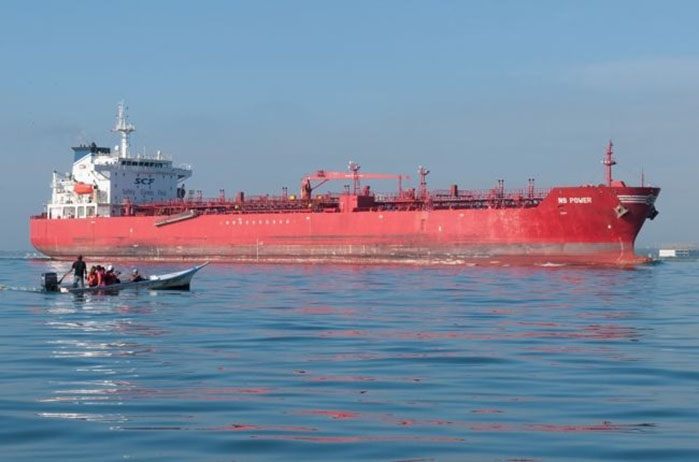Country’s oil imports soar by 10% to $8.7bn in seven months

ISLAMABAD: Despite all measures taken by the federal government to overcome the imports, the country’s oil import bill soared 10 per cent year-on-year to $8.68 billion during the first seven months of this fiscal year, according to data released by the Pakistan Bureau of Statistics (PBS).
On the other side, the imports of agriculture products and textile group from all of the groups including machinery-related items contracted during the period under review.
PBS’s data for July-January period suggests trade deficit is on a declining trend; as a result, the overall import bill during the seven-month period fell by 5.17pc YoY to $32.49bn. Consequently, the trade deficit fell by 9.66pc YoY to $19.2bn YoY during the same period.
Product-wise data shows that petroleum group imports saw a double digit growth of 10pc, reaching $8.68bn in July-Jan as against $7.89bn over the corresponding months last year, with the largest surge coming from crude oil, up 27.15pc.
The cost of petroleum products’ imports dipped 13.37pc during the seven months, whereas a 35pc decline was recorded in terms of the total quantity imported; bringing the total down to 6.29 million tonnes.
The import bill for LNG soared by 74.68pc, while that of liquefied petroleum gas plunged 19.66pc. The data shows a changing trend in the imports, with machinery-related imports registering a marginal decline, and oil imports — including LNG — bill increasing in large part due to the rise in global oil prices.
For a number of years now, machinery imports have been a cause of major reason for the government since they have continuously fuelled trade deficit but since the past few months, the category has seen a decline in imports.
For July-Jan FY19, machinery imports fell by 21.38pc to $5.22bn, from $6.67bn last year. This was led by shrinking imports of textile and power-generating machinery at 10.66pc and 54pc, respectively.
However, mobile phone imports also dipped by 7.11pc while those of construction machinery declined 29.48pc. Transport group, another major contributor to the trade deficit, also receded during July-Jan as it posted a 28.87pc decline. The months saw a dip in imports of almost all transport-related items.
Food imports — the second-largest component contributing to the total import tally — shrank 8.29pc during the period under review.
Textile exports inch up
The textile and clothing export proceeds posted a paltry growth of 1.19pc YoY to $7.8bn during the seven months. On monthly basis, total export proceeds during the month of January surged by 8pc year-on-year to $1.16bn. The product-wise details show that exports of ready-made garments went up by 2.26pc, knitwear up 11.35pc, bed wear 3.75pc, whereas towel exports declined 2.59pc, while that of cotton cloth declined by 1.25pc in value.
The slow growth in textile and clothing exports comes despite government’s support in the form of cash subsidies, special export packages and multiple rupee depreciation during the last year.
Among primary commodities, cotton yarn exports decline by 14.13pc, yarn other than cotton by 0.27pc whereas made-up articles — excluding towels — increased by 2.29pc, tents, canvas and tarpaulin dipped by 0.47pc with proceeds from raw cotton dipping by 73.7pc during the period under review.






